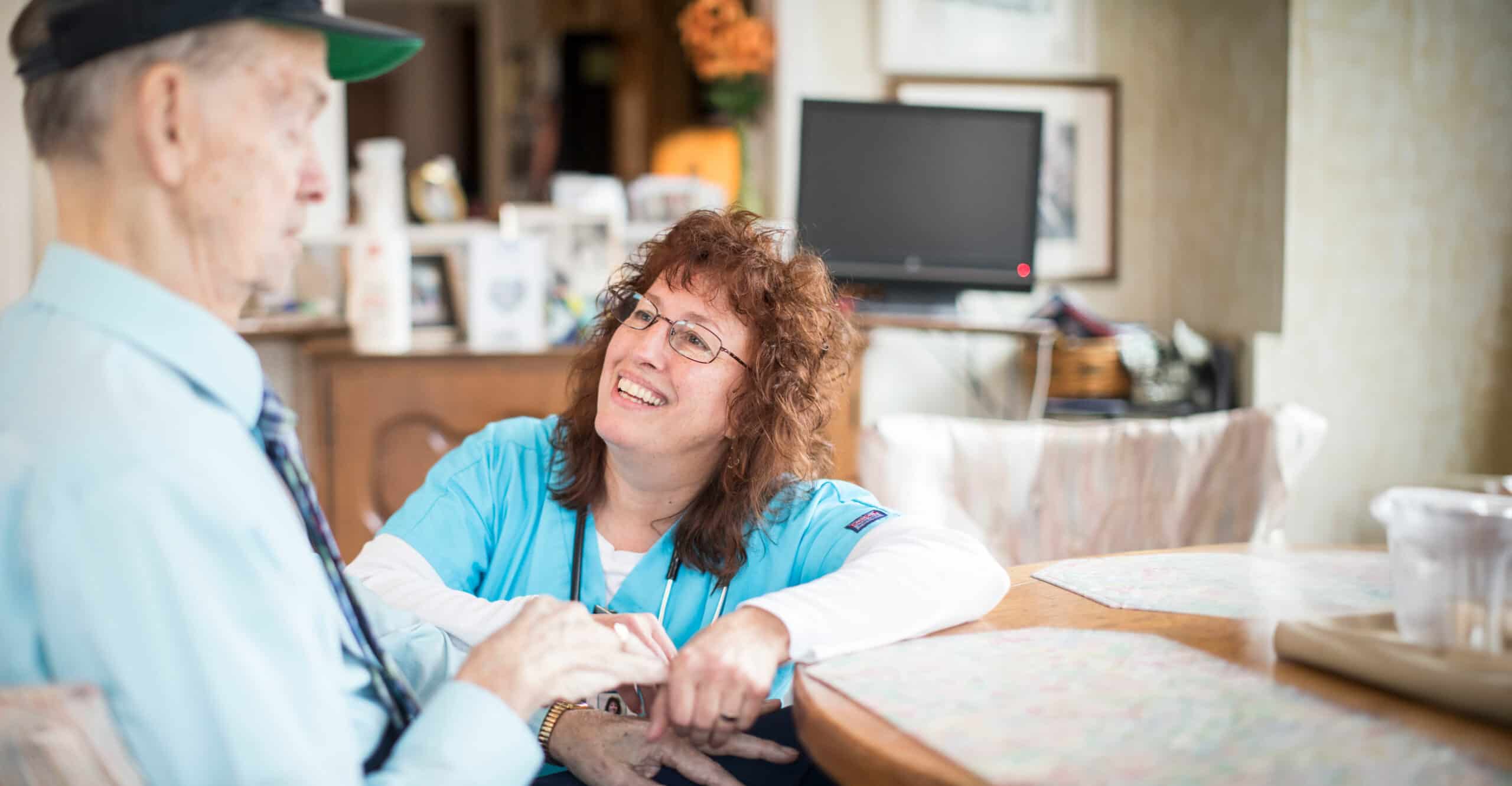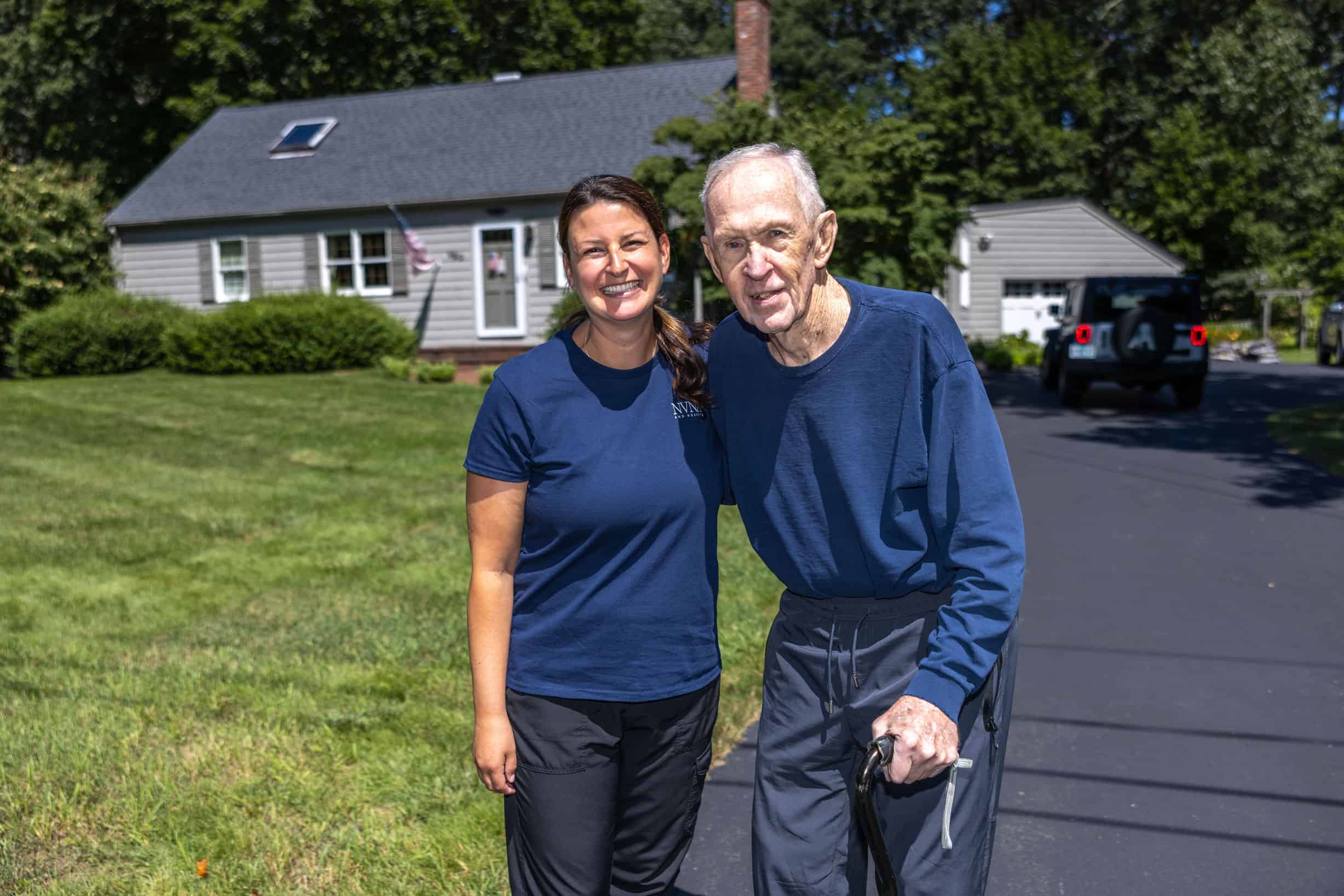Noreen Cataldo, RN, CCM, is the director of Navigator 27, a new consultative service offered by NVNA and Hospice that is helping families deal with complicated medical diagnosis and decisions.

According to the Family Caregiver Alliance, approximately 43.5 million caregivers provided unpaid care in the last 12 months. Most of those caregivers suffer from some level of stress and anxiety related to that care. This is not only due to the care itself: stress and anxiety also arise from not knowing where to turn, what resources are available, or how to ensure the best decisions are being made based on medical, emotional and economic standing.
South Shore Home, Life & Style recently sat down with Noreen Cataldo, RN, CCM, and Director of Navigator 27, a new case management service offered by NVNA and Hospice to discuss how the program is supporting families in need.
What exactly is Navigator 27?
As its name implies, Navigator 27 is a concierge case management service of NVNA and Hospice that helps families navigate the complexity of aging and care transitions. While the overall population is aging in place longer, there often comes a time when remaining at home may not be the safest and best option.
We guide clients and their families through the process of figuring out how to enhance the safety of the home option, potentially with home care services. Or, we work together on next steps exploring other alternatives for their loved ones, which may be a transition to an assisted living care setting or a skilled nursing facility. We also make referrals out to other providers in our community who work in the area of senior care, including elder care lawyers, financial planners, and varied community resources.
What does the 27 stand for?
The number 27 represents the 27 towns that we serve on the South Shore. However, our reach continues far outside that radius. Many of our clients reside outside of the area themselves, which is why they need assistance with referrals to health care agencies and providers in this area as well as onsite, boots-on-the-ground support.
What sort of assistance are you providing for your clients?
The type of assistance can vary based on each unique care situation. Families often find themselves in a state of crisis and panic when deciding on transitional care arrangements for an aging parent or spouse. It’s very overwhelming as so many options on care determinations can be in play.
This service was born out of a need for answers. As a nurse, many times I have talked with a caregiver as they have shared the discharge plans from a hospital or skilled nursing facility case manager who may not know the patient very well and may not have been made aware of their home situation or support system. Due to current staffing constraints, these case managers may have very little time in the facility to offer extensive individualized case management services to each patient.
That time of transition from one care setting to another is critically important. It needs a careful and thoughtful plan in place to set the patient and family up for success.

Can you give us an example of a situation that you helped navigate?
I received a call from an out-of-state daughter whose father suffered a stroke with significant residual deficits and also had an underlying diagnosis of mild dementia. Following a lengthy stay at a major Boston teaching hospital, they began talking about a discharge plan.
This family was very overwhelmed with the sudden medical event that their father suffered and was looking for additional guidance and options. Numerous rehab facilities had declined admission for him based on his clinical acuity and challenging behaviors. Being home would be a challenge as well, as he would need caregivers in the home providing around-the-clock care.
We were able to attend the discharge planning meetings with the hospital staff and explore safe and appropriate options for this patient outside of the acute care hospital. We continue to work together on both short and long-term goals for this patient and family.
Have you encountered any surprises that you didn’t anticipate before starting this new service?
I think that the degree of clinical complexity has been a little surprising to me. I have found that my nursing background and my prior individualized case management background have been very beneficial to this role because of the level of complexity that has been presented to me in my current caseload.
Does Medicare or private insurance cover the cost?
No, Navigator 27 is a private pay service. The feedback that I have received from the patients and families that I have worked with over the past few months is that this has been a valuable investment—it is helping them to navigate the challenges with which they have been confronted.

